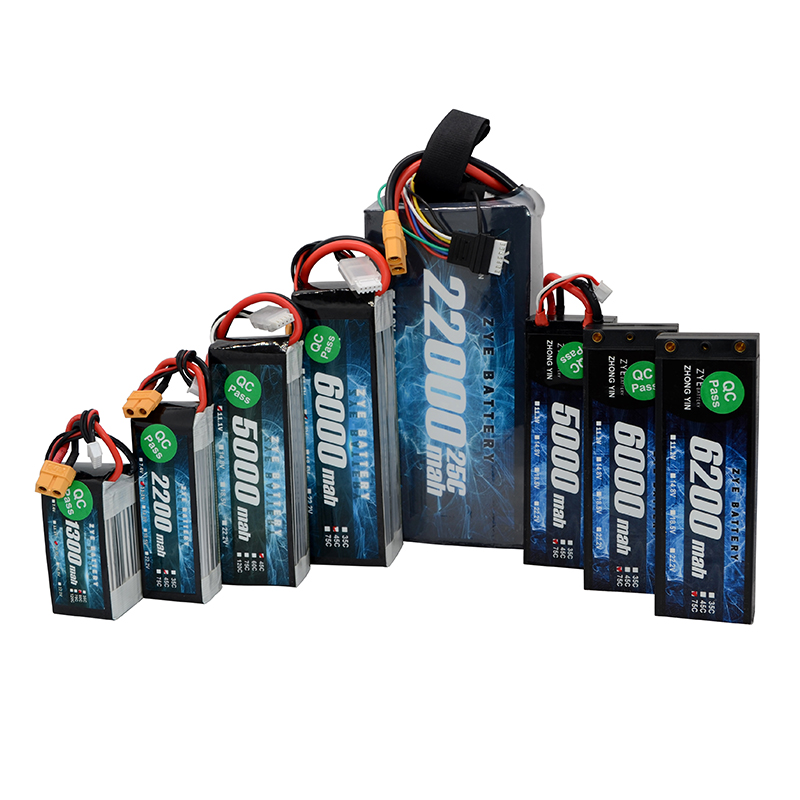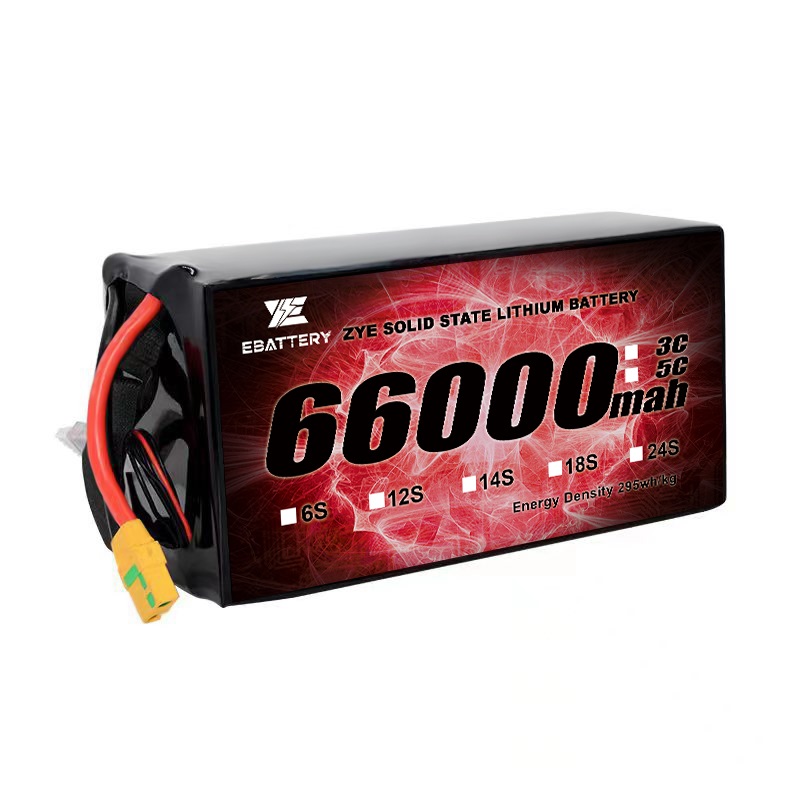How to calculate drone lipo battery run time?
Knowing your lipo-battery battery’s run time is critical. It prevents mid-flight power failures, helps plan missions efficiently, and extends the lifespan of your battery (and drone). Below is a practical, original guide to calculating drone LiPo battery run time, with real-world examples and tips to avoid common mistakes.
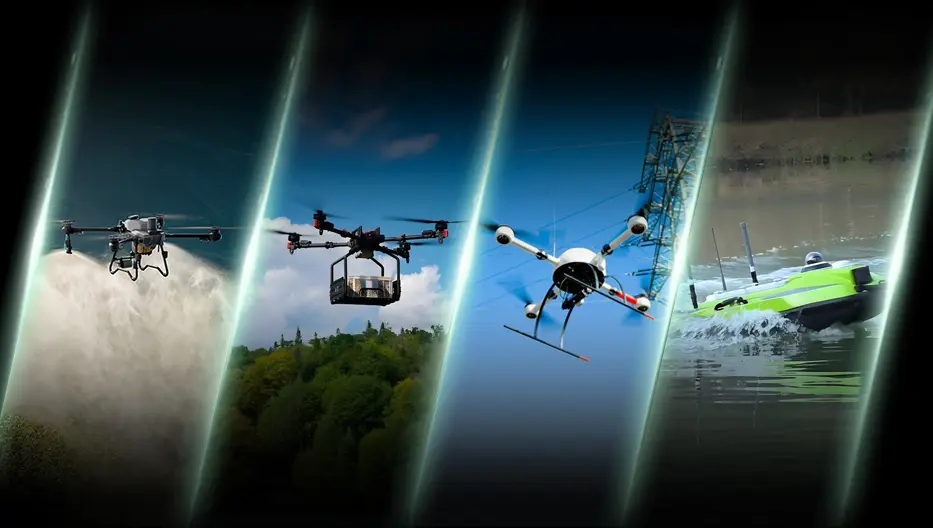
Understand the Key Terms You’ll Need
Before diving into calculations, you must familiarize yourself with three core LiPo battery specs—all of which are printed on the battery’s label (e.g., “3S 2200mAh 25C”).
mAh (Milliampere-Hours): The battery’s capacity—how much electrical current it can supply over one hour. 1mAh = 0.001 Ampere-Hours (Ah).
S (Cell Count): The number of LiPo cells connected in series. Each LiPo cell has a nominal voltage of 3.7V (full charge = 4.2V, minimum safe voltage = 3.0V).
C Rating: The battery’s discharge rate—how quickly it can safely release energy, expressed as a multiple of its capacity. A “25C” battery can discharge 25× its mAh capacity.
Drone’s Average Current Draw (Amps): How much current your drone uses during flight, measured in Amperes (A). This depends on the drone’s weight, motor size, propellers, and flight style.
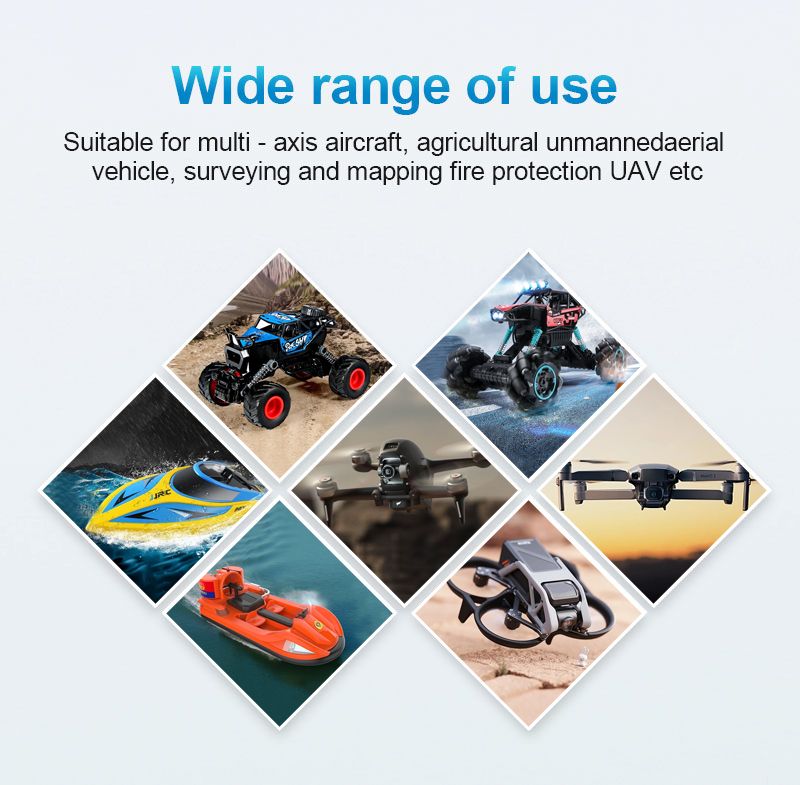
Key Factors Affecting lipo-battery Run Time
Several factors influence the run time of a lipo battery, and understanding these can help you make more accurate calculations:
1. Discharge Rate
The discharge rate, often expressed as a C-rating, indicates how quickly a battery can safely discharge its capacity. A higher C-rating allows for a higher current draw but can potentially reduce overall run time.
2. Load Current
The amount of current your device draws from the battery significantly impacts run time. Higher current draw will deplete the battery faster than lower current draw.
3. Temperature
Extreme temperatures can affect battery performance. Cold temperatures can temporarily reduce capacity, while high temperatures may increase internal resistance, both potentially shortening run time.
4. Battery Age and Condition
As batteries age, their capacity gradually decreases. A well-maintained battery will generally provide longer run times compared to one that has been heavily used or improperly stored.
5. Voltage Cut-off
Most devices have a low voltage cut-off to protect the battery from over-discharge. This means you may not be able to use the battery's full capacity in practice.
6. Check Battery Health
Old or damaged lipo-battery lose capacity (e.g., a 2200mAh battery might only hold 1800mAh after 50 cycles). Use a battery checker to measure actual capacity (not just the labeled mAh) for accurate calculations.
Advanced Considerations
For more accurate calculations, consider the following:
1. Use a watt-hour (Wh) calculation for devices with varying voltage requirements.
2. Factor in the battery's efficiency, which is typically around 80-90% for lipo batteries.
3. Consider the voltage curve of the battery, as performance may decrease as the battery discharges.
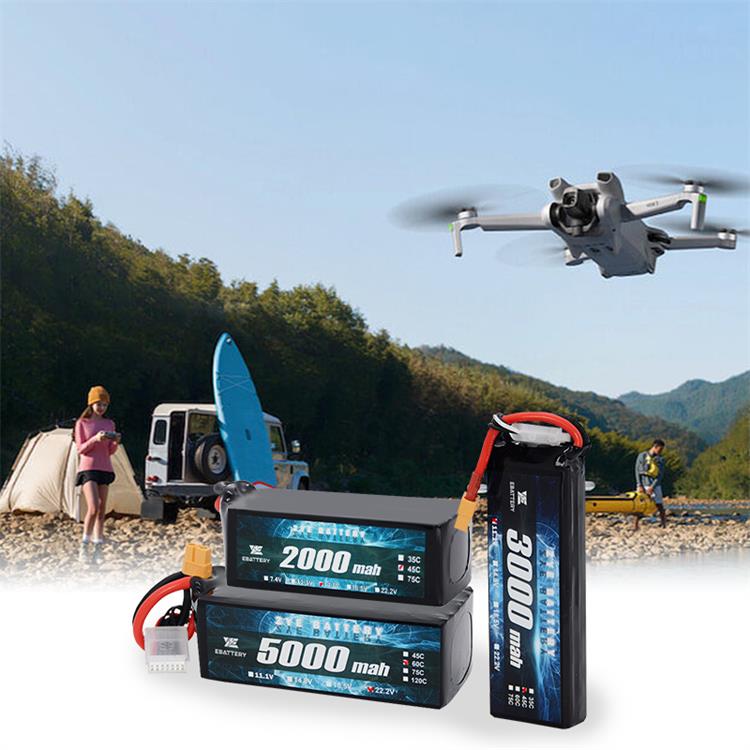
Tools for Accurate Calculations
While manual calculations provide a good estimate, there are several online calculators and smartphone apps designed specifically for lipo battery run time calculations. These tools often allow you to input multiple variables for more accurate results.
Final Thoughts
Remember: the goal isn’t just to “guess” run time, but to plan flights that keep your drone (and lipo-battery) safe. With a little practice, this process will become second nature—whether you’re chasing a sunset or completing a work mission.
If you have any questions about battery care or are looking for high quality lipo battery solutions, please feel free to contact us at coco@zyepower.com. We're here to help you power your projects safely and efficiently.























































